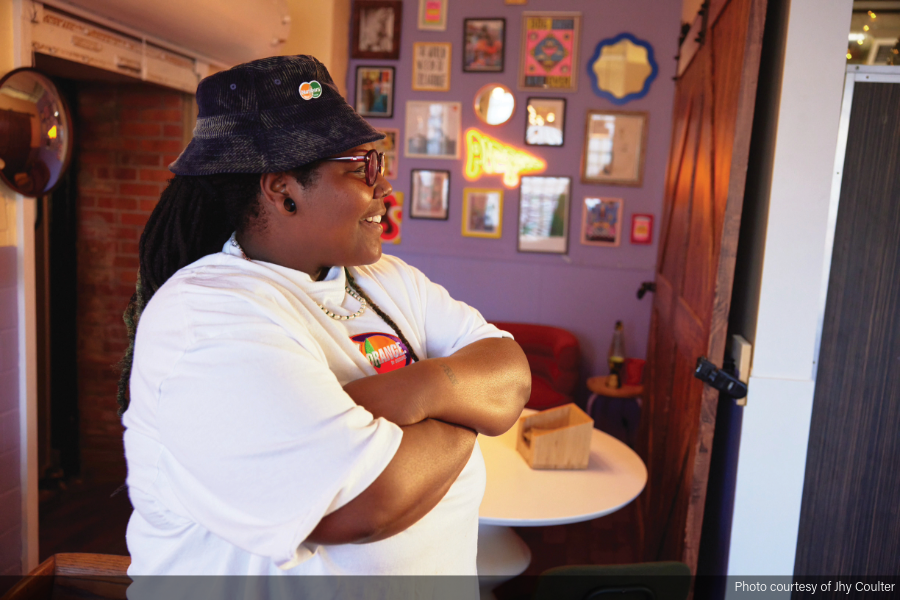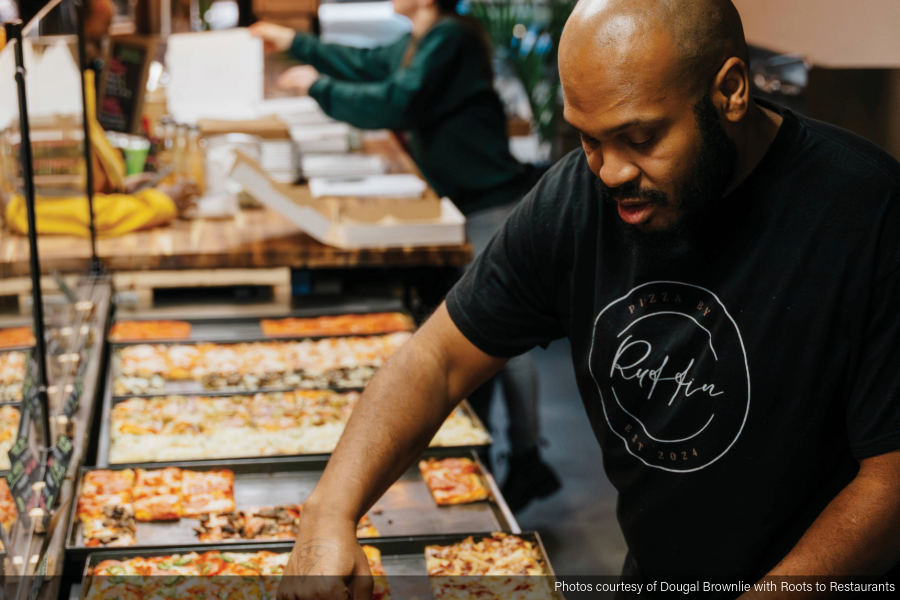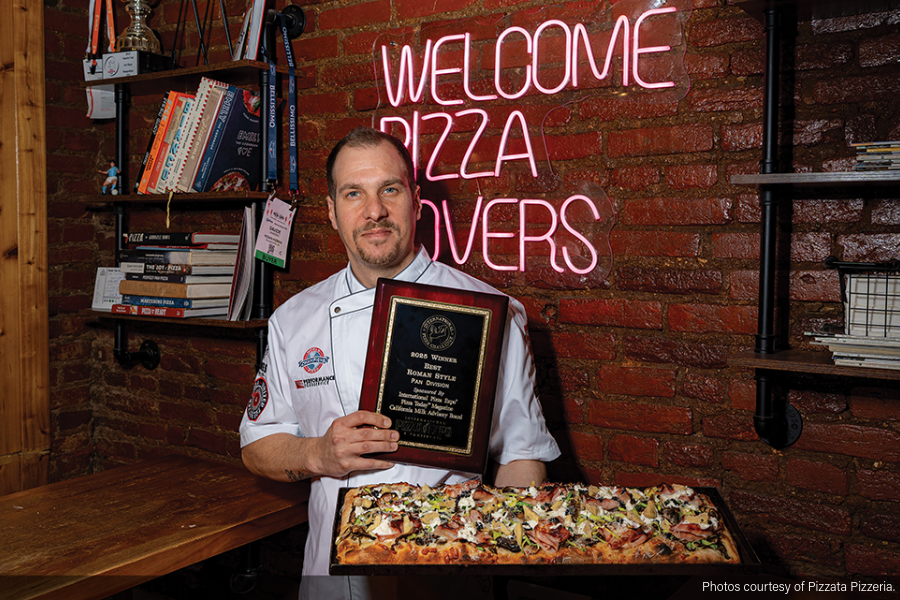 A drink together after work, watching a college football game over the weekend and friending each other on Facebook: all great activities to take on with buddies. But things get complicated when you’re laughing over cocktails with your employees. Suddenly, the work dynamic at your pizzeria is different. There are rumblings among the staff about favoritism. And your friend/employee is quitting work 30 minutes before the end of his shift.
A drink together after work, watching a college football game over the weekend and friending each other on Facebook: all great activities to take on with buddies. But things get complicated when you’re laughing over cocktails with your employees. Suddenly, the work dynamic at your pizzeria is different. There are rumblings among the staff about favoritism. And your friend/employee is quitting work 30 minutes before the end of his shift.
The camaraderie among restaurant staff often sets the stage for friendships to form between employers and employees. There are benefits to nurturing these relationships; forming friendships with your staff helps lighten the large workload and eases the stress caused by the occasionally irate customer. But problems can arise. Christy Pearson of Opus Leadership Group says: “the risks to having a ‘friendship’ with an employee when we are the boss is that the boundaries of the relationship can get blurred and the focus can be more on the friendship and less on the business relationship.” Suddenly, you are no longer the boss in charge — you are someone your employees can hang out with, laugh with, drink with. The respect you’ve worked so hard to earn from your staff can be destroyed.
But the disadvantages of forming friendships with staff go much further than a loss of respect. For one, explains Roberta Matuson, CEO of Matuson Consulting and author of Suddenly in Charge, “sometimes friends take advantage of one another.” Your friend’s breaks start getting a little longer, and he treats your kitchen fridge as his personal snack bar. Your employee isn’t acting like one, and it is having a negative effect on your business. When you confront your friend and ask him to change his behavior, he brushes it off because you’ve lost all authority with him. “It’s hard to fire an employee,” cautions Matuson, “and it’s even more difficult when that employee is now your friend.”
Or your staff could start to feel resentment toward both you and your pal. Every time you praise your friend for a job well done, they’ll wonder why you’re not praising them. Every time your town’s big tippers are seated in her section, they’ll feel short-changed. Feelings of jealousy will start to brew among your employees, creating a negative environment your customers are sure to pick up on. And employees who feel they are being ignored in favor of the boss’s pet will start to search for another job where they will feel valued and appreciated. What’s more, Matuson warns, “claims of discrimination may easily surface if you are indeed treating certain people differently than others.”
One way to avoid the problems that come with mixing friendships with business is to keep things professional. “Bosses should be friendly,” advises human resources expert Andrea Ballard of Expecting Change, LLC, “but that doesn’t mean they have to be friends with their employees.” A professional relationship will not only make it easier for you to give your employee orders, you’ll be capable of honestly evaluating their performance without seeing it through the rose-tinted glasses of friendship.
But if you are already buddies with your staff, you can take steps to keep your friendships without losing control of your pizzeria. AP Grow, author of How Not to Suck as a Manager, says it starts with both parties recognizing “where the work relationship and the friendship both start and end. It may seem overcautious, but having a very direct conversation on this topic would not be a bad idea.” Set an example for your friend; if you want him or her to treat you like a boss at work, treat him or her like an employee. Save the gossip and the inside jokes for the times you spend together after hours, and keep at-work conversations on the topic at hand — work.
Both you and your friend should also have a clear understanding of his work responsibilities and the consequences of shirking them. “Just because a friendship has been established (or previously existed), does not mean that special favors are given,” explains Pearson. “The employee should understand that their role at work is to be a good employee and a good team member to the other employees.” When they see that you are expecting the same level of work ethic from your friend as you are from them, your employees will stop resenting your friendship and start working with you as a team. And they’ll cancel their job search.
With one person in the relationship wielding so much power, conflicts are bound to arise in boss/employee friendships. When they do, Pearson suggests you “take time to discuss and resolve the disagreement. Be mindful that having this conversation may not be appropriate at work. Wait until closing or when customers are not around so that adequate time and attention can be allowed to take care of the relationship.”
Above all, be honest with yourself. If you can’t manage being both boss and friend, it might make sense for your friend to find another job. Your pizzeria needs a strong leader; your friend needs a compassionate confidante. Take on only one role at a time, and your pizzeria and friendship will be all the stronger for it.

A Friendly Workplace
While you might not want to invite your employees on your family vacation, you shouldn’t treat them as nothing more than walking social security numbers. “When employers take care of their employees, their employees take care of the business,” says Christy Pearson of Opus Leadership Group.
To build a better work relationship with your employees, start by talking about your love for the pie. Bruce Markoe, Owner of Union Pizza Company in Manhattan Beach, California, sees results with this approach. “If they can feel the passion that I have for making a great pizza and understand why I feel that way, I can see that some of that passion does rub off on them so they care more about the quality of their work.”
And remember to celebrate your pizzeria’s success with the people who helped you achieve it. “Every time we break a daily sales record,” reveals Markoe, “I buy the beers and cake to share with the team.”
Toronto-based freelance writer Amy White covers business, management, and lifestyle issues for trade publications and magazines.






